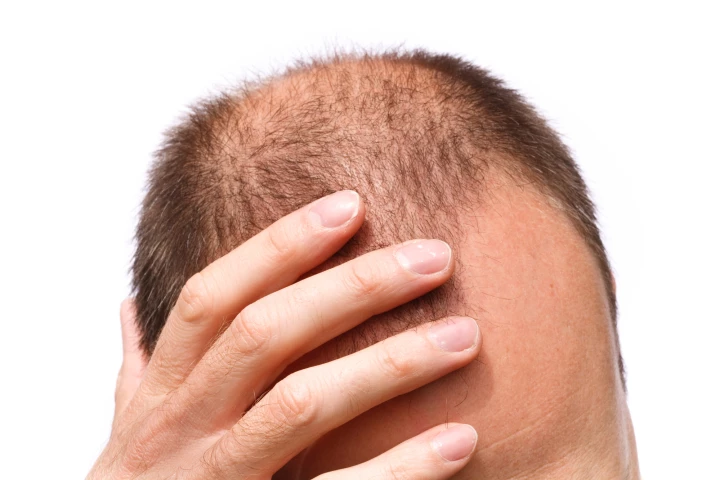Baldness
-
A new study into the molecular mechanisms underlying hair growth has found that aging cells may be key. Their findings potentially open the door to developing new hair loss treatments that harness the innate abilities of these often-maligned cells.
-
Researchers have successfully stimulated hair growth in mice using microRNA to genetically manipulate the hair follicle’s stem cells, meaning that balding pate may one day be sporting a mane of luscious locks.
-
Scientists in China researching advanced treatments for a common form of hair loss have found success through a novel microneedle patch, which was used to tackle oxidative stress and regenerate hair in bald mice.
-
Scientists studying the way hair follicles take shape in the human body have found new success in the lab, demonstrating a way of growing fully matured forms of them in culture with hopes of pioneering advanced treatments for hair loss disorders.
-
Researchers at UC Riverside have identified a single protein that seems to control when hair follicles die. Armed with this new information, it might eventually be possible to reverse the process and stimulate hair regrowth.
-
Scientists probing the intricate machinery behind hair growth have uncovered a previously unknown role for a signaling molecule, whose messages were found to be critical to new growth and could be leveraged to address hair loss in humans.
-
A new player has entered the hair loss scene promising a new form of treatment that takes a more efficient approach to regenerating lost follicles, by skipping a common step in the production of induced hair stem cells.
-
A new study has uncovered a previously unknown mechanism whereby stem cells can lose their adhesiveness and become dislodged from hair follicles in aging mice, leading to hair loss. They've also identified genes that could be key to reversing the process.
-
Scientists in China are throwing a new potential hair loss treatment into the mix that uses a dissolvable microneedle patch to stimulate hair growth, with the technology proving high effective in mouse models of hereditary pattern baldness.
-
Harvard scientists have published a paper detailing how stress hormones suppress the regenerative capabilities of hair follicles, adding to our knowledge around hair loss and raising new possibilities around how it might be tackled.
-
Researchers studying hair loss Japan have shed yet more light on the topic, discovering a new mechanism by which dividing cells can drive hair follicles to exhaustion, subduing their regenerative abilities as we age.
-
A breakthrough study from scientists in Japan has homed in on the specific characteristics of stem cells responsible for hair cell regeneration and identified the optimal ingredients to generate continual hair follicle growth.
Load More











